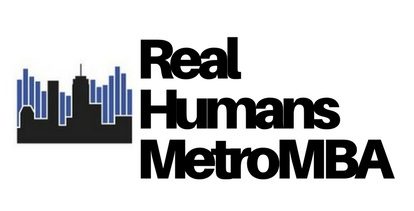The Big Picture: The 5 Most Important MBA Numbers of 2018

Each year there’s a ton of new information that comes out about MBA programs. From new rankings to the latest GMAC news, there are a thousand little tidbits that can overwhelm applicants, students, and alumni. We’ve collected the most important MBA numbers of 2018.
To pare down the news into the information you need to know, we’ve taken a look at the big picture of the MBA for 2018 and outlined the five most important pieces of data you need to know. We’re talking about everything from the decline and U.S. MBA applications to the increase in female enrollment, the higher salaries and GMAT scores, as well as the increase in interest in technology. Continue reading…
How Woman Can Close the Pay Raise Negotiation Gap, and More – Chicago News

Let’s explore some of the most interesting stories that have emerged from Chicago business schools this week.
Are You Willing to Stretch the Truth While Negotiating? – Kellogg Insight
Research trends have found that men are more willing to lower personal ethical standards during negotiations than women when it comes to pay raise negotiation.
However, a new study from Northwestern University Kellogg School of Management‘s Maryam Kouchaki, Assistant Professor of Management and Organizations, finds that there’s a situation that throws a wrench in the works: “when women negotiate on behalf of others.”
Kouchaki and her UC Berkeley co-author Laura Kray write:
“A woman who is negotiating on behalf of someone else will lie at roughly the same rate as her male counterpart. But, if she is negotiating on her own behalf, she is much less likely to deceive. Women in advocacy roles [get] as much done as men.”
You can read more about Kouchaki’s pay raise negotiation research here.
Will EU Migrants Pay Their Fair Share of Taxes? – Chicago Booth News
The Chicago Booth Initiative on Global Markets surveyed its European Economic Experts Panel, which is comprised of “50 economists and top researchers,” about whether recent European migrants are likely to “contribute more in taxes paid than they receive in benefits and public services.”
LSE’s Daniel Sturm writes, “Being younger and typically better educated, their [the migrants’] fiscal contribution tends to be positive as suggested by recent research for the U.K.”
Goethe University Frankfurt’s Jan Pieter Krahnen agrees:
“As [the] employment rate among migrants goes up over time, and much of taxation is indirect anyway, chances are that the statement comes true.”
Director of the European IGM Panel Christian Leuz is less optimistic. “[It is] too early to tell. Labor market outcomes are often worse for [a] long time. Demographics are [a] plus. Much depends on fast integration into [the] labor market.”
You can read more from the panel’s discussion here.
Faculty and Students Team Up with Northern Illinois Food Bank – Quinlan School of Business News
Loyola University Quinlan School of Business’ Urban Social Benefit Incubator teamed up with the Northern Illinois Food Bank to develop a “new system for serving its families” to replace the precarious first-come, first-served process it currently employs.
Quinlan is proposing “an online ordering system that allows for pick-up at strategic locations in the community, such as a grocery store.”
Harry Haney, Associate Director of Quinlan’s Supply and Value Chain Center, who is helping spearhead the initiative, writes:
“It’s important to us to serve nonprofits and social enterprises to help make a difference in the community. Plus, our students are learning the real-world side of business and gaining additional educational exposure.”
You can read more about Loyola’s food bank initiative here.
Real Humans of the York University Schulich School of Business

A half century after the opening of the York University Faculty of Administrative Studies (FAS), the York Schulich School of Business in Toronto continues to shape the Canadian MBA landscape.
The business school, which was officially renamed in 1995 after a receiving sizable donation from esteemed Montreal philanthropist and entrepreneur Seymour Schulich, has earned a substantial track record of firsts in Canada, including: the country’s first MBA Arts & Media Administration specialization; MBA/LLB; Nonprofit Management and Leadership Program; International MBA; Financial Services Program; Financial Engineering specialization; and the first multi-national EMBA program with the Northwestern University Kellogg School of Management.

Of course, the history of a school may paint an overall setting, but it hardly tells the story of a current, individual student in the program. York Schulich MBAs stand out among many of Toronto’s stellar business schools, typically enrolling with a GMAT score of 660 and five years of professional work experience. As well, the York Schulich international community is well-represented, at 32 percent of the overall MBA class.
According to recent employment statistics provided by the school, Schulich MBAs typically earn about $91,500 CAD per year after earning their degree. In addition, about 89 percent of graduates earn employment just three months after graduating. Most grads earn roles in finance (23 percent), with marketing/sales (20 percent) and operations (18 percent) following closely.
To get a better feel for what life is really like for current York Schulich MBAs, we talked to a handful of students, including the manager of a long-standing luxury jewelry store, a theater major and performer, and a commercial lawyer looking for a brand new career challenge. Read on to see their stories and what the future may hold for life after an MBA.
Americans Are Disconnected With Upward Mobility, Says New Kellogg Research – Chicago News

Let’s explore some of the most interesting stories that have emerged from Chicago business schools this week.
How Closely Do Our Beliefs About Social Mobility Match Reality? – Kellogg Insight
New research from Northwestern Kellogg Assistant Professor of Managerial Economics and Decision Sciences Edoardo Teso assessed mobility rates among social classes in the U.S., U.K., France, Italy, and Sweden and found that Americans’ overestimated and Europeans underestimated “people’s chances of climbing from the bottom to the top of the economic ladder.”
According to the article, Teso wonders whether the disconnect between people’s perceptions compared to the reality of social mobility might “explain why the United States often resists income redistribution policies such as higher taxes for the wealthy, while many European nations embrace them.”
“These perceptions are really deeply rooted,” Teso notes.
“America is famously a land of immigrants where many people did in fact build their own fortunes. In contrast, Europe practiced feudalism for centuries, during which a person’s fate was largely governed by their family circumstances,” Teso’s research claims.
You can read more about research here.
PIMCO and University of Chicago’s Center for Decision Research Announce Partnership to Guide Wiser Decision-Mking – Booth School of Business News
To commemorate the partnership between Chicago Booth’s Center for Decision Research (CDR) and PIMCO, an “innovator in applying research to investment decisions,” the CDR laboratories will be rechristened the PIMCO Laboratories for Decision Research, which will “yield scientific discoveries with the potential to improve individual and social welfare.”
PIMCO Group CIO Dan Ivascyn writes, “Through this novel partnership, we hope to nurture exceptional insights into decision making behavior that will ultimately help PIMCO make wiser decisions for portfolios, clients and employees.”
Booth Dean and George Pratt Shultz Professor of Accounting Madhav Rajan writes, “PIMCO’s spirit of experimentation and interest in asking real-time questions about investing and the economy make it the ideal partner for Booth.”
According to the press release, the PIMCO Decision Research Laboratories will “include a new ‘storefront’ behavioral science research lab to foster greater engagement with the public and to broaden the reach and increase diversity of participants in the research studies.”
Rajan continues, “From PIMCO’s plans to disseminate CDR’s research findings, to conducting joint projects in behavioral science, the collaboration will have a transformational impact on our research enterprise.”
You can read more about the partnership here.
MBA Student Carley Mostar Secures Funding for Her Community – UIC Business Blog

Carley Mostar, Gies MBA ’19
The UIC Liautaud Graduate School of Business recently profiled Carley Mostar, MBA ’19, whose “Info Park” project secured $25,000 in funding from the Ford College Community Challenge (Ford C3).
Conceived as a collaboration between Mostar, the UIC School of Architecture, and the community of East Garfield Park, Mostar dreamt a plan to transform “one of the lots into a member-use space for the community to use as our own public or private space.”
Mostar and the group have hit the ground running, working with “community engagement workshops and have even started researching fabricators and vendors to work with in preparation for construction, slated to start in early spring of 2019.”
Mostar explains the importance of incorporating the voices of the community into her “Info Park” plan.
“It’s very important to me when doing this kind of work to make sure that the people who the work is for have their voices centered in the outcome of the project,” she says in a recent interview.
You can read more about Mostar and the project here.
What Are the 5 Most Common MBA Interview Questions?

To get into an MBA program, you’ll first have to make it through the interview process. Depending on where you apply, you could be asked a range of different questions, many of which are specific to the school. Unfortunately, this can make it difficult to prepare for success, especially if you’re applying to more than one school at a time.
To help you prepare for your MBA interview, we’ve gathered together the five most common MBA interview questions, along with advice for answering each question. But first, we need to figure out what questions you’re most likely to run into.

Determining the Five Most Common Interview Questions
In a recent podcast on Clear Admit, Alex Brown, who wrote Becoming a Clear Admit: The Definitive Guide to MBA Admissions, tackled some of the most common MBA interview questions faced by current applicants. He unpacked interview questions such as, “Walk me through your résumé” as well as “Give us an example of a time you took a leadership role.”
To get a full idea of the most common interview questions, we took a look at the top ten schools as outlined by the U.S. News & World Report to figure out which questions were asked by the most schools. We looked at:
- UC Berkeley Haas
- University of Michigan Ross
- Northwestern Kellogg
- MIT Sloan
- Stanford Graduate
- The Wharton School
- Chicago Booth
- Harvard Business School
- Columbia University
- Dartmouth Tuck
At each of these schools, there were a few common denominators when it came to questions asked. Here’s what we found:
1. Why did you choose this school/program?
Almost every school, except MIT Sloan and Harvard Business School, wants to know why you’re interested in their specific program. After all, admissions teams know that you’re interviewing at more than one school and they want to know that you’ve done your research and chose schools that were a good choice for you personally. They don’t want to necessarily know that you know the history or prestige of their school or program, they want to know how their program aligns with your goals and interests and how it makes practical sense for you.
When answering this question, you want to try and be as specific as possible when it comes to “why” this program. Be sure to know which clubs, classes, centers, professors, case studies, alumni, or events fit into your MBA goals. This is your best opportunity to demonstrate your research and to show the admissions committee doesn’t question why you chose them, and that you’ve taken the time to imagine what it’s like to attend their school.
2. Why are you pursuing an MBA now?
You can go back to school for your MBA at any time, but why are you interested in going back now? That’s what every school wanted to know except for Wharton, HBS, and Columbia. The goal with this question is to figure out how an MBA fits in with your current goals for your career and objectives.
During this question, you want to talk about your future career plans and why your situation in life is leading you to make a move to the MBA now. You’ll want to discuss your motivation for choosing the MBA now and how the MBA will help your long-term interests be accomplished. Make sure your explanation plots out a path where the MBA is vital to reaching your goals.
3. Walk me through your résumé.
All but four schools on our list asked students to walk them through their resume. Often, this is the first question that you may be asked in your interview. The goal of this question is to allow you to give a summary of your experience to date. This gives the interviewer some groundwork that they can build upon for the rest of the interview. So, how you answer this question is vitally important.
This question might appear very simple at first glance, but it can have a lot of little landmines that you’ll want to avoid. A good approach to this question is to think of it as your resume executive summary but in verbal terms. The interviewer is looking for key descriptive terms that define who you are. This is your opportunity to weave in some strengths, passions, and interests.
We suggest coming up with a two- to three-minute verbal version of your resume that focuses on highlights in your career. Make sure you focus on “why” you made certain career choices to better explain your path and then highlight the outcomes of those choices.
4. Tell me about a time you demonstrated leadership. What did you learn from it?
This can be a tricky question, but it’s definitely one that you could come across since all but four schools were reported as asking it. The goal here is to demonstrate that you’ve had some experience in a leadership role, even if it’s not traditional. During this question, you can speak about any influence you may have had over your peers—outside of traditional hierarchy—or leadership skills you may have gained during a project.
The key is to prepare three to four anecdotes that you can draw from to highlight such things as your leadership style and skills. In particular, make sure you can talk about key leadership skills such as vision, communication, teamwork, and so forth. And if you can, make sure you can quantify the outcomes of your experience.
5. Are there any questions you’d like to ask the interviewer?
At all but two of the schools—Harvard and Dartmouth Tuck—interviewees were asked to finish out the interview with their own questions. While this might appear to be a simple question at first, it is vital that you get it right. No admissions committee wants you to be a passive candidate, and this is your chance to demonstrate that you are thoughtful, prepared, and interested.
The key here is not to be generic and only ask questions like, “Why do you love X school?” Instead, you want to ask questions that are specific to your goals. For example, you might ask, “What other resources does the school offer for this industry?”
In the end, whether you’ve already been invited to a few interviews or you’re still waiting to hear back, it’s important to get prepared as quickly as possible. By practicing answers to some of these common questions, you can ensure that your interviews go off without a hitch.
Kellogg On Pharma’s Lack of Innovation, and More – Chicago News

Let’s explore some of the most interesting stories that have emerged from Chicago business schools this week.
Everyone Wants Pharmaceutical Breakthroughs. What Drives Drug Companies to Pursue Them? – Kellogg Insights
Northwestern University Kellogg School of Management Professor of Finance Dimitris Papanikolaou recently co-authored new research that illuminates why “pharmaceutical firms these days often make minor changes to existing medications instead of delivering innovative drugs.”
The study, which was co-authored with HBS’s Joshua Krieger and MIT Sloan’s Danielle Li, found that “financial frictions may be limiting innovation.”
According to the article, “The researchers found that firms were eager to work on novel drugs—under the right financial circumstances. When pharmaceutical companies got a windfall, such as a sudden increase in profits, they were more likely to spend it on developing novel drugs than on incremental improvements.”
You can read more about the trio’s research here.
Kadiani Finds Passion for Social Entrepreneurship at Gies Business – Gies College of Business News
The University of Illinois Gies College of Business recently profiled current Master of Accountancy Science student Hamed Kadiani whose social entrepreneurship journey began as part of student organization Illinois Enactus, which helped him understand his desire to see “what the root of the problem is, and then develop a solution that fixes the cause, not the symptom.”
Kadiani later served as project manager for Project Oasis, an “online center that connects immigrants to resources in Champaign-Urbana, provides access to 75 resources in six main focus areas such as healthcare and education, [and] teaches immigrants financial literacy and entrepreneurial skills.”
According to the interview, Kadiani plans to become a CPA but shared his ambitions to some day run for political office.
“I hope I made an impact on campus, but I truly believe this work made more of an impact on me. I am who I am today because of this university and Gies College of Business.”
You can read more from the Gies College of Business News profile here.
Mendoza’s Marketing Major Puts a Strong Emphasis on Digital Skills – Mendoza Ideas & News
Notre Dame Mendoza’s Marketing Department recently recruited Professor Timothy Bohling, who will teaching Digital Marketing to both undergraduate and graduates in spring 2019.
Having previously held senior executive leadership positions at Stratasys, HCL Technologies, and IBM, Bohling’s research and teaching interests are “centered both on scholarly rigor and practitioner relevance in areas of digital marketing, customer relationship management, decision modeling, customer lifetime value and innovation adoption.”

The Mendoza Marketing Department has introduced four specialized tracks that emphasize data-based strategies: marketing decision analytics, brandscaping; consulting and market development; and digital marketing.
You can read more about Bohling, his research, and the 2019 courses here.
